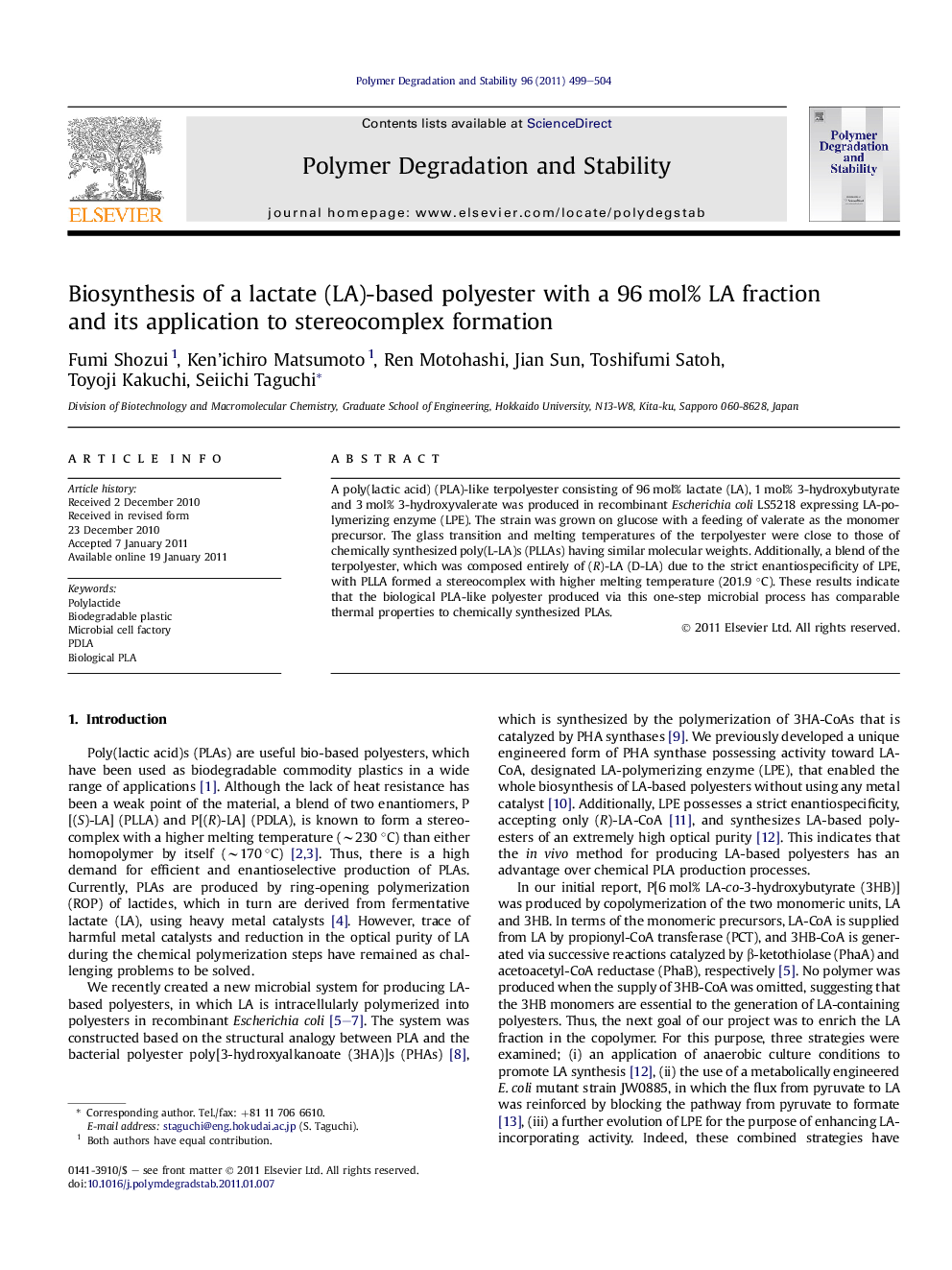| Article ID | Journal | Published Year | Pages | File Type |
|---|---|---|---|---|
| 5202901 | Polymer Degradation and Stability | 2011 | 6 Pages |
Abstract
A poly(lactic acid) (PLA)-like terpolyester consisting of 96 mol% lactate (LA), 1 mol% 3-hydroxybutyrate and 3 mol% 3-hydroxyvalerate was produced in recombinant Escherichia coli LS5218 expressing LA-polymerizing enzyme (LPE). The strain was grown on glucose with a feeding of valerate as the monomer precursor. The glass transition and melting temperatures of the terpolyester were close to those of chemically synthesized poly(L-LA)s (PLLAs) having similar molecular weights. Additionally, a blend of the terpolyester, which was composed entirely of (R)-LA (D-LA) due to the strict enantiospecificity of LPE, with PLLA formed a stereocomplex with higher melting temperature (201.9 °C). These results indicate that the biological PLA-like polyester produced via this one-step microbial process has comparable thermal properties to chemically synthesized PLAs.
Related Topics
Physical Sciences and Engineering
Chemistry
Organic Chemistry
Authors
Fumi Shozui, Ken'ichiro Matsumoto, Ren Motohashi, Jian Sun, Toshifumi Satoh, Toyoji Kakuchi, Seiichi Taguchi,
